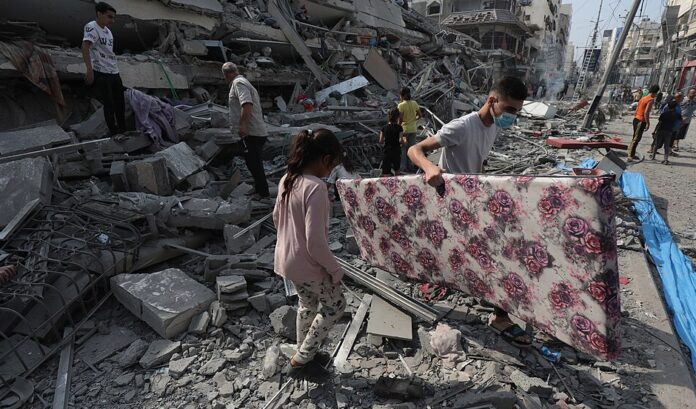Israel’s envoy accuses UN aid chief of abusing ‘genocide’ term amid Gaza humanitarian crisis
Israel fiercely criticised the United Nations aid chief this week for invoking the term “genocide” during a UN Security Council briefing on the humanitarian crisis in Gaza. Ambassador Danny Danon, Israel’s envoy to the UN, accused Tom Fletcher of weaponising the word and delivering a “political sermon” that lacked evidence or mandate.
In his address to the 15-member Security Council earlier this week, Fletcher had asked, “Will you act decisively to prevent genocide and to ensure respect for international humanitarian law?” His words came amid growing fears of famine in Gaza, where Israel has maintained a blockade on aid deliveries for 75 days, drastically worsening conditions for the civilian population.
Danon responded swiftly with a sharply worded letter on Friday, condemning Fletcher’s comments as “utterly inappropriate and deeply irresponsible.” He questioned the UN aid chief’s authority to levy such a grave accusation without restraint, warning it shattered any notion of neutrality expected from a senior UN official.
“You had the audacity, in your capacity as a senior UN official, to stand before the Security Council and invoke the charge of genocide without evidence, mandate, or restraint,” Danon wrote. His letter accused Fletcher of politicising the conflict at a moment when humanitarian efforts should focus on saving lives rather than inflaming tensions.
Fletcher’s office has yet to respond to requests for comment on Danon’s letter.
The term genocide carries profound legal weight under international law, which defines it as the intent to destroy, wholly or partially, a national, ethnic, racial, or religious group. This includes acts of killing, inflicting serious harm, or deliberately imposing conditions calculated to bring about physical destruction.
The Gaza conflict stems from a devastating October 7, 2023, attack by Hamas militants that killed approximately 1,200 people in southern Israel and resulted in the abduction of around 250 hostages. Since then, Israel has imposed a stringent blockade on Gaza and conducted extensive military operations against Hamas, exacerbating the dire humanitarian situation.
Embed from Getty ImagesWith the blockade in place for more than two months, aid deliveries have plummeted, and shortages of food, medicine, and basic supplies have reached critical levels. International observers have expressed grave concern about the risk of widespread famine and civilian suffering.
Despite this, Israel has maintained that its military actions and restrictions target Hamas militants and their infrastructure, not civilians. Israeli officials have repeatedly rejected allegations that their actions constitute genocide or collective punishment.
The tension between Israel and the UN aid chief reflects broader international disagreements over how to describe and respond to the Gaza crisis. While some humanitarian actors call for immediate relief corridors and ceasefires, others caution against politically charged language that could derail diplomatic efforts or inflame regional tensions.
As the humanitarian situation deteriorates, the battle over narratives intensifies. Israel’s rejection of the genocide label underscores its insistence on framing the conflict as a necessary fight against terrorism, while UN officials and aid groups highlight the mounting civilian toll and urgent need for aid access.
This latest dispute highlights the challenges of navigating language and accountability in one of the world’s most fraught conflicts. With lives at stake, the world watches closely as both sides struggle to assert their perspectives amid the growing crisis.
